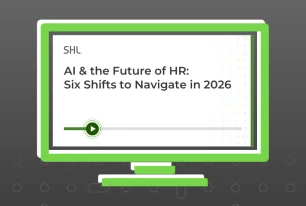Decoding Healthcare’s Skills DNA: Strengths, Gaps, and the Path Forward
Discover the latest research on skills in healthcare: where the sector excels, where it lags, and how HR leaders can harness these insights to build stronger, more adaptable teams for the future.
Share
Healthcare’s unique skills profile
Our analysis into the skills that contribute to success in various industries revealed that those in healthcare need a wide range of skills to succeed—with skills required across ten different competencies including leadership, strategic thinking, delivering results, dependability and collaboration. This demonstrates the breadth of tasks that healthcare professionals are expected to be proficient in and highlights the challenges in hiring and developing talent in this industry. What did our research reveal about the strengths and skills gaps?
The power of critical thinking
Healthcare professionals have long been recognized for their technical expertise and dedication to patient care, but our recent research sheds fresh light on the skills that set them apart. Based on over 1,400 candidates that took SHL’s Global Skills Assessment, analysis showed healthcare candidates consistently outperform their peers in two crucial areas: analyzing information and critical evaluation. These strengths are not just academic-they translate directly into better clinical decisions, improved patient outcomes, and a culture of evidence-based practice.
Collaboration and communication: the bedrock of care
The research also highlights that healthcare professionals demonstrate solid capabilities in team cohesion and consulting with others. These collaborative skills are essential in multidisciplinary environments where seamless communication can mean the difference between life and death. For HR leaders, this means the healthcare talent pool is well-equipped to thrive in team-based care models and adapt to new collaborative technologies.
Where healthcare falls short: a surprising skill gap
Despite the sector’s reputation for rigorous standards, the data reveals a notable gap: healthcare candidates, on average, score lower than the general population in complying with rules and regulations. This is particularly striking given the industry’s heavy regulatory burden and the direct impact of compliance on patient safety and organizational reputation. In an era of increasing scrutiny and evolving regulations, even small lapses in compliance can lead to significant risks. For HR and talent leaders, this finding is a call to action: targeted upskilling and training in compliance is not just a box-ticking exercise but a strategic imperative for safeguarding both patients and the organization.
Upskill with purpose and leverage transferable strengths
The path forward is clear: discover the skills strengths and gaps within your team and invest in targeted development programs that address these gaps, particularly in areas that success relies upon—such as compliance, critical thinking, and collaboration. Together with learning platforms that can help build upon developmental insights to empower employees to action personalized development plans, training can be engaging, relevant, and turn potential weaknesses into a competitive advantage.
For organizations hiring from healthcare, the wider skillset that the talent in this industry possess can be a powerful asset, especially in roles that demand quick thinking, teamwork, and the ability to navigate complex information. Considering cross-industry mobility is a great way to fill hard-to-hire roles and bring fresh perspectives into your teams.
Harness data for smarter talent decisions
Healthcare’s dynamic environment demands ongoing learning and adaptability so professional development should be encouraged and expected. This approach not only helps close current gaps but also prepares your workforce for the next wave of industry change.
With robust skills data, HR leaders can move beyond intuition and make data-driven people decisions to build more resilient, high-performing teams. Mapping skills to roles-and identifying where your teams excel or need support will enable more strategic skills-first workforce planning and better patient care outcomes.
Ready to dive deeper? Discover the full list to skills contributing to success in Healthcare and other industries by downloading our report, Bridging the Skills Gap: Essential Skills for Success Across Key Industries.









